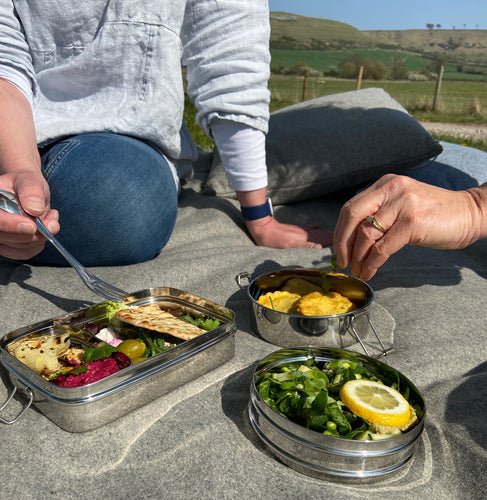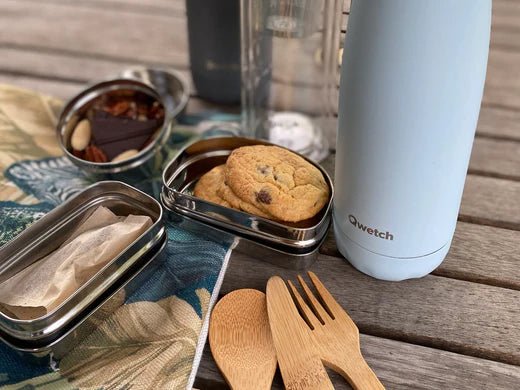Brand Review: Pigeon Organics
The idea for a children's organic clothing brand came in 2001, when founder Jane Shepherd was working for an environmental charity in London. Jane learned about the severe negative environmental and health impacts associated with growing and harvesting regular cotton, which uses around a quarter of all insecticides globally. Pigeon Organics was founded and continues to produce beautiful baby and children's clothing, overseen by Jane herself. The company is based in Oxfordshire, UK.

Is Pigeon Organics an Ethical Company?
Ethical Values
1. Labour Practices
Their beautifully soft cotton is 100% organic and their clothes are made in a small number of factories which adhere to fair labour practices, responsibly produced in India. See below for a full description of how this claim is supported.
Pigeon Organics choose to have their clothing made in India for a number of reasons, reliable quality and supply are two of them, but price is also a factor. Because the cost of raw materials and labour in India are lower than in the UK (where Pigeon originally manufactured their garments) their organic clothes are affordable, which is a major factor in the decision to purchase organic items as opposed to non-organic.
India is the world's largest producer of organic cotton, accounting for half of the global supply. There are good reasons why organic cotton clothing is made in India:
Environmental Awareness
Organic cotton farming has increased in India due to environmental concerns and climate change. Conventional cotton farming can pollute soil and water with chemical residues. Organic farming can help protect the environment by:
Creating healthy soil: Organic farming practices create healthy soils that can soak up water during floods and hold it longer during droughts.
Reducing carbon emissions: Organic cotton production emits 50% less carbon dioxide than standard cotton growing.
Using rainfall: Cotton crops are irrigated with rainfall collected in reservoirs during monsoons.
Supporting farmers
Organic farming can help farmers feed their families and avoid debt cycles. Farmers can grow other crops alongside their cotton to keep the soil healthy, and they don't have to rely on GM companies for seeds.
Reducing environmental impact
Manufacturing cotton fabric and clothing in India, where the cotton is grown, reduces the environmental impact of exporting raw materials to other countries for processing
They work with hundreds of small independent retailers across the UK and further afield and care about providing them with the best possible service to support vibrant high streets in our towns and cities.
2. Materials

Organic cotton is not only kinder to the environment, choosing organic cotton means limiting a baby's exposure to potentially harmful chemicals usually found in non-organic clothing. Babies absorb much more of their environment than adults, in part through the skin, which is more permeable than adults. The safest alternative is clothes made of certified organic cotton.
3. Production and Certification

The cotton range is certified by the Soil Association in accordance with GOTS (Global Organic Textile Standard). This certification covers the entire supply chain, from field to finished product. Being certified organic by the Soill Association, means offering huge benefits for the environment, the farmers, (particularly small farmers in developing countries) and their families - and of course it is very gentle on a baby's sensitive skin. The dyes used on all fabrics are not organic themselves, but meet the Oeko-tex 100 standard, which protects against harmful substances.
Every year the Soil Association visit Pigeon Organics and assess books, record keeping and warehousing. They check all aspects of sales and production. They check the labelling inside garments – each garment has an ID tag which can be traced back to specific organic certificates. They also check staff employment contracts and interview staff to ensure proper treatment and working conditions. Each of their suppliers, right the way back through the entire supply chain, undergoes the same process. This is a comprehensive evaluation.
GOTS (Global Organic Textile Standards):

The Soil Association is the UK certification body which certifies clothes in accordance with GOTS (Global Organic Textile Standards). GOTS (Global Organic Textile Standard) is a globally agreed standard to which the main national certification bodies have signed up. It not only covers environmental factors, but also social considerations by ensuring that all processors and manufacturers meet the minimum social criteria of the International Labour Organisation (ILO), covering employment practices, working conditions, pay, collective bargaining, and the banning of child labour. For more information about GOTs, go to www.global-standard.org.
Environmental Impact

1. Product Lifecycle
Their thoughtful designs are timeless, high quality and well made. They are intended to last a long time with features such as fold out cuffs to fit your ever growing baby and also be passed on to siblings, family and friends.
2. Company Initiatives
Within their small Oxford base, they aim to minimise their environmental impact: all of their company’s electricity comes from renewable sources and they are currently in transition to compostable bags for their packaging.
Pigeon also want to make a difference wherever they can, they support the following initiatives:
A helping hand – According to WOMENSAID.ORG.UK “On average two women are killed by their partner or ex-partner every week in England and Wales.” They donate spare stock to refuges supporting vulnerable women and their children in Oxfordshire (their home county).

Refugee support – According to the UN, by the end of 2017, 68.5 million individuals were forcibly displaced worldwide – the highest level ever seen. They recently sent two pallets of spare stock to be used in refugee camps in Greece, under the guidance of the charity Everyday Refugees.
Baby Bank Network Whether or not we’ve had children ourselves, we all know what a wonderful but also challenging time it can be. There is huge pressure to do the right thing, be a good parent and to provide the very best in terms of emotional wellbeing and physical goods for the new baby; so potentially (and ironically) it can be an incredibly difficult, lonely and stressful time. Pigeon Organics support three Baby Banks in Exeter, Birmingham and Bristol with donations of spare stock.
Transparency
Pigeon Organics has a dedicated Values page and communicates well about their materials, production facilities and certifications (see above). They also share ethical and sustainability information in a blog and social media accounts.

Kate's Conclusion
Pigeon Organics' dedication to ethical sourcing, organic materials, responsible production and community engagement perfectly aligns with our values at Green Tulip. Their high-quality, baby clothes are simply beautiful, they are so well made and you can tell how soft and long lasting they will be. Finding out about the ethical and environmental practices was simple as they communicate them well and their commitment to organic principles and fair working practices are comprehensively examined every year by The Soil Association.
Overall a great brand with a strong eco and ethical focus that we have had a relationship with since 2018.
I think Jane, the founder of Pigeon Organics says it best herself:
"In an ever changing world, we like to hang on to a few fundamental values. We love to design and to create beautiful collections for small people. But we also care out where our cotton comes from, who makes our clothes, who sells them and who wears them.
Not everyone can be expected to buy organic products all the time, but we hope that when people have the choice, they will think about the positive benefits to the environment, to the farmers and their families, that organic farming can bring.
At Pigeon, we don’t want to grow huge, we just want to do what we love doing, working with people we like, in a way that has a positive impact wherever possible."

Stay Informed About Ethical Brands:
Sign up for our newsletter to receive regular updates on the latest ethical and eco brands we stock and get exclusive insights into their sustainable practices.




